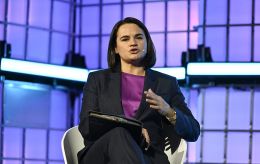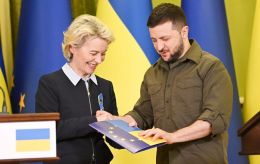Battle of attrition: Putin prepares for prolonged war and militarizes Russia
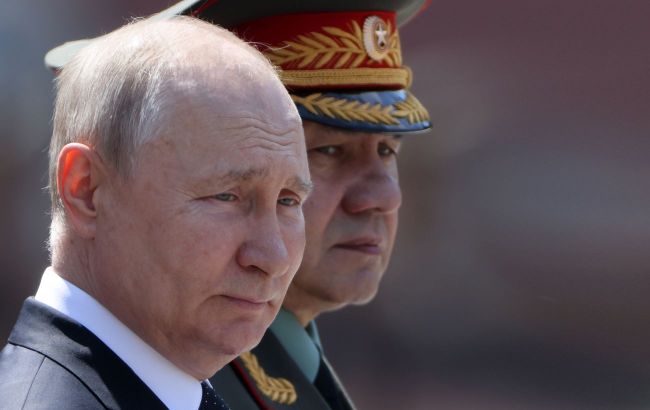 Vladimir Putin and Sergei Shoigu (Getty Images)
Vladimir Putin and Sergei Shoigu (Getty Images)
Russia is evidently preparing for a war of attrition. This is indicated by the recent government reshuffles in the Russian Federation. Details on how the new Defense Minister Andrey Belousov will assist Vladimir Putin and what Russia is betting on is covered in the RBC-Ukraine report below.
Sources: exclusive comments from Russian economist Ivan Preobrazhensky and director of the New Geopolitics Research Network Mykhailo Samus.
Contents:
Russia has been waging a full-scale war in Ukraine for over two years, aiming to occupy as much territory as possible. During this time, the Kremlin was forced to abandon plans for a "small victorious war" – the resistance of Ukrainian troops and active Western support played their part. However, Vladimir Putin's goal, by all accounts, remains the same: to capture as much of Ukraine as possible.
Due to numerous sanctions, a lack of understanding of how Ukrainian society is structured, and their own short-sightedness, Moscow has had to change tactics on the fly. The Russian economy is becoming militarized, repression is becoming more widespread, and processes of government restructuring have begun in the Kremlin. It is clear that Russia is preparing for a protracted war, in which there may be sluggish combat operations on the front and an attempt to completely freeze the conflict.
Government reshuffles in Russia
Vladimir Putin once again claimed victory in the so-called elections and on May 7 took office for his fifth term. An inauguration was held in the Kremlin for this occasion, attended by a critically small number of foreign guests. Putin began his new six-year term with government reshuffles, and the first affected was Defense Minister Sergei Shoigu.
Shoigu had been in the government long before Putin first became president of Russia. He, according to analysts, belongs to one of the most influential clans in the Russian Federation – the clan of Yury Kovalchuk, who is referred to as Putin's "wallet." Rumors of Shoigu's dismissal had been circulating long before May. These were influenced by various corruption scandals and the failure in the war, which was supposed to be short and victorious, but turned into a difficult confrontation with grim consequences for Moscow.
Instead of Shoigu, Putin appointed Andrey Belousov to the Ministry of Defense – a figure scarcely seen in military command, as Belousov is an economist. Or, as he is called in the Kremlin's political elite, the "accountant." Before his appointment, Belousov held various positions in the Russian government - he was the First Deputy Prime Minister, Putin's aide on economic issues, and the Minister of Economic Development.
Shoigu himself was not simply dismissed; such a practice, experts claim, is not accepted in the Russian Federation when it comes to the president's inner circle. Instead, the former minister was appointed to lead the Security Council, and Nikolai Patrushev – one of the war's ideologists and the Kremlin's shadow leader – was appointed as Putin's aide. According to Press Secretary Dmitry Peskov, he will oversee the shipbuilding sector. Another aide taken by the Russian dictator was the governor of the Tula region, Alexei Dyumin. While such a move for Patrushev might indicate retirement with access to the body, Dyumin's appointment is considered an intermediate stage in his career by experts.
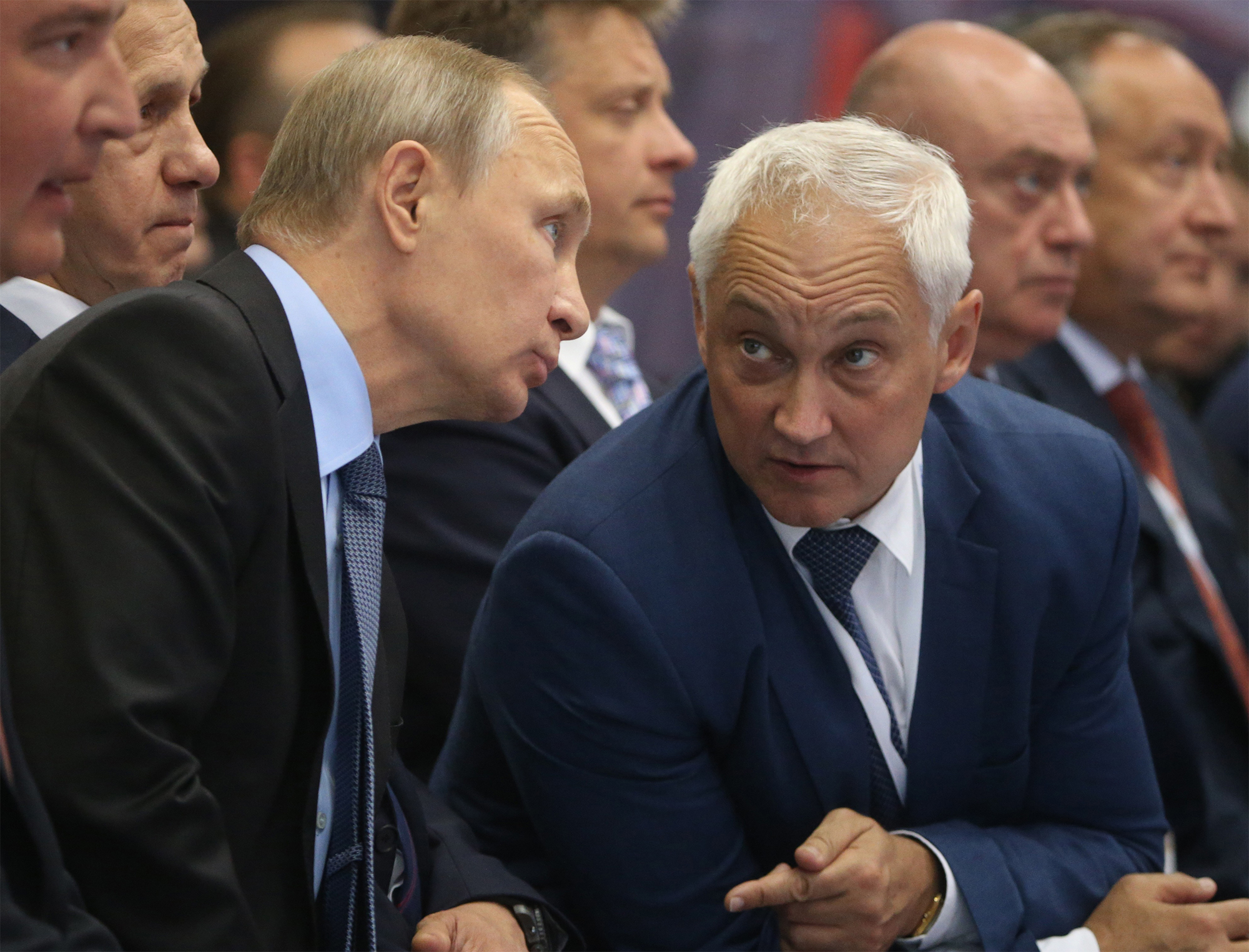
Putin and Belousov (photo: Getty Images)
In Russian political circles, opinions on these chessboard rearrangements vary. Some call Shoigu's appointment a promotion, while others argue that his new position is essentially a dismissal. Sources like Bloomberg say that Putin finally lost patience with the corruption in the Ministry of Defense, which, despite good relations with Shoigu, led to his reassignment to the Security Council. Shoigu's dismissal may also have been influenced by the Wagner Group's revolt, as its now-deceased leader Yevgeny Prigozhin repeatedly blamed Shoigu for battlefield failures. Recently, Putin has been setting various individuals against Shoigu, according to economic analyst Ivan Preobrazhensky.
"Shoigu is a person who entered Russian politics many years before Putin stole his first million. He clearly considered himself quite free in his actions. Now it turns out that there is essentially no defense minister. And Putin himself is the defense minister, directly interacting with the General Staff," Preobrazhensky said in a comment to RBC-Ukraine.
Preparation for war of attrition
The new Russian Defense Minister, Andrey Belousov, is known not only as an "accountant." He is primarily a proponent of "war Keynesianism" – the idea of state-regulated economy, and in the case of Russia, regulation for the needs of the military. Both Belousov and his father, a Doctor of Economics, specialized in mobilization economics.
Belousov is considered one of the architects of the current economic model in Russia, which actively adapts to sanctions and aligns all its processes around the military-industrial complex.
"He is probably the most effective of the people around Putin today. He is almost like Sergey Glazyev (former Minister of Economy of the Russian Federation – ed.) in terms of his understanding of how to regulate the economy, but unlike Sergey Glazyev, he is a well-educated economist," Preobrazhensky said.
Analysts agree that Belousov was appointed to the Ministry of Defense to effectively manage and allocate funds. However, opinions diverge on how events will unfold next. According to Mykhailo Samus, director of the New Geopolitics Research Network, Belousov might try to fight corruption in the Ministry of Defense and become "the second Serdyukov" (former Russian Defense Minister Anatoly Serdyukov – ed.), against whom the entire military-political wing of the Kremlin was armed after his reforms.
"I just have a question here, whether Belousov will develop corrupt schemes, black schemes, or fight them. It is interesting. If he develops them, nothing will change. He will exist for some time, and then he will also be ousted because he will be set up and so on. I think this will turn into another period of 'Serdyukovshchina'," Samus said in a comment to RBC-Ukraine.
Preobrazhensky holds a different view – he believes Belousov will become chief of logistics and will not dismantle the entrenched corrupt structure of the Russian defense industry, which, despite its obvious illegality, holds together and produces results.
"He is by no means an uncorrupt manager, as everyone is now saying. Accordingly, corruption will continue under him. But in his previous positions, he was not very effective. It can be said that this is perhaps the best of the worst choices by Putin, and even after the reconfiguration, it is far from certain that the Russian government will build an ideal militarized economy," Preobrazhensky said.
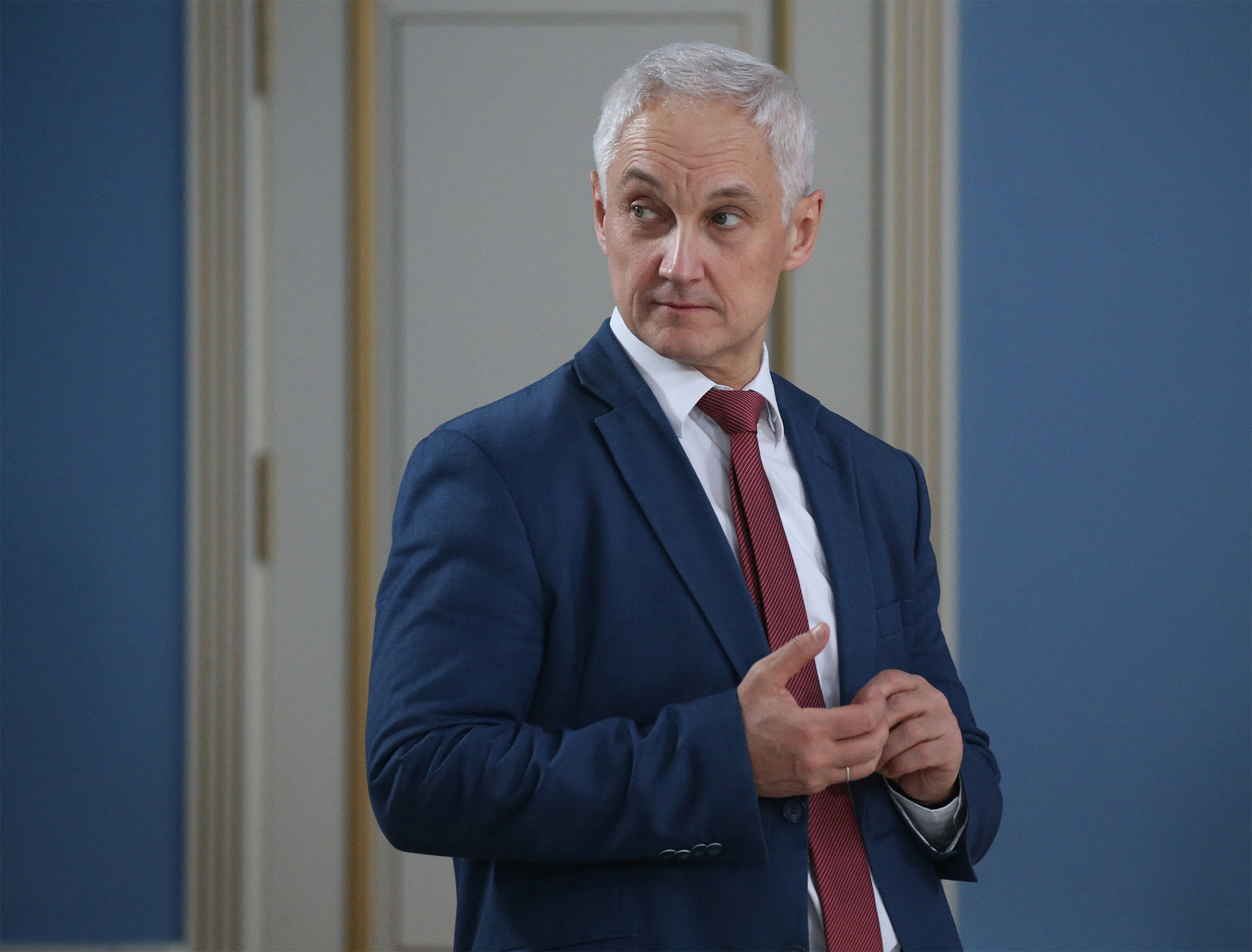
Andrey Belousov (photo: Getty Images)
Nevertheless, the fact that an economist has been placed at the helm of the Ministry of Defense clearly indicates that Putin has learned from past mistakes and no longer intends to "take Kyiv in three days." Moscow is actively restructuring its economic policy, as hinted at by Peskov's statement that "it is very important to integrate the security sector's economy into the entire country's economy to align with the current dynamics." Belousov will not be asked about military strategies such as how to bypass Kharkiv or where to launch an offensive. He will be required to manage finances.
"He will be responsible for ensuring that the entire Russian economy runs on military tracks, that the military economy becomes the driver of the overall economy, and that the civilian economy does not stagnate but grows through the military economy. And to effectively extract all the money from Russian businesses, which, due to sanctions, have transferred funds back to Russia from the West," Preobrazhensky added.
Endless war
From everything happening in the Russian government today, it is evident that the Kremlin is preparing for a war of attrition. There is a struggle for resources, and whoever has more resources can dictate the terms.
While Ukraine seeks resources from allies and attempts to establish its own military-industrial production, Russia exploits loopholes in sanctions, fosters smuggling, and establishes situational contacts with pariah states like North Korea and Iran. The fact that Putin has decided to finally count the money indicates that he plans to fight for as long as possible.
For the Russian dictator, it is advantageous for the war to last as long as possible, as it solves all his problems. As long as Russia is at war, there is no need to answer questions, implement reforms, and it allows for the strengthening of totalitarian mechanisms, pressing down on society. On the other hand, the Kremlin does not shy away from the idea of capturing Ukraine. In this light, Russia's policy can still be called opportunistic – pursuing the goal by seizing every possible opportunity.
"It is clear that his idea is to destroy Ukraine as an independent state. In this sense, it is truly about continuing the war until the so-called goals of the 'special military operation' are achieved, which no one knows but everyone understands involves the dismantling of Ukraine and the genocide of the Ukrainian people due to their self-identification as Ukrainians," Preobrazhensky said.
However, the occupation of Ukraine may only be an intermediate step. Moscow continually repeats narratives about the "collective evil," with its axis shifting from Berlin to Washington. To exhaust both Ukrainian society and Western resources, Putin has evidently set out to build the Russian economy in such a way that the war can last not just one or two years. But realizing his grand plans is unlikely to succeed in his lifetime.
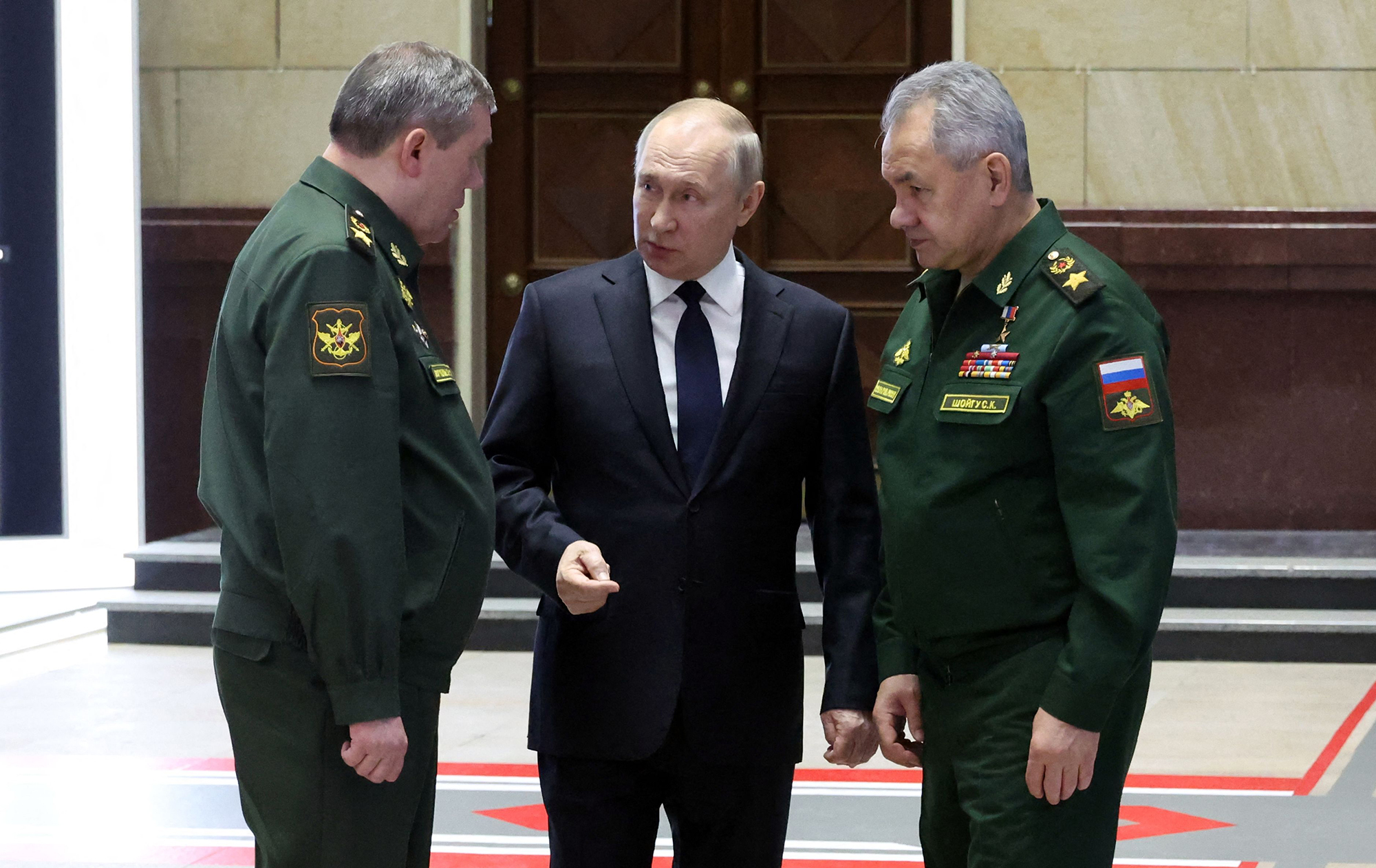
Putin, Shoigu and Gerasimov (photo: Getty Images)
"As long as the US did not provide us with aid, the Russians had a window of opportunity. Now that window is practically closing. It will be fully closed by June, when the Ukrainian army will have enough ammunition, missiles, bombs. And maybe even the F-16s will finally arrive, and the second half of the year will not unfold as the Russians had planned," Samus said.
You can set the economy on military tracks, smuggle in relatively small quantities of imported microelements, and sell oil using a shadow tanker fleet. But all this is difficult to oppose against a large quantity of modern weapons and sanctions, which, no matter what, have their effect.
The war is undoubtedly already in a stage of attrition, and judging by the reshuffling in the Kremlin, it will continue to be so. Russia has been increasingly showing the world that it is choosing a policy of isolationism and militarism. For Ukraine, this is clearly one of many serious signals. But it is also a signal for the West, which periodically raises the topic of negotiations. It is becoming increasingly evident that engaging in diplomacy with Moscow in its current state makes no sense, as noted by Mykhailo Podolyak, adviser to the Office of the President of Ukraine.
"Russia is finally isolating itself and will try to scale the war, expand its formats, simultaneously restructuring its economy to operate in acute/deficit formats, in one way or another capable of ensuring a sharp increase in the military component. In any case, there are no options for Russia to return to adequate participation in global processes, and therefore any negotiation formats are impossible," Podolyak wrote on social media.
In such a situation, there is a prospect that at some point, Ukraine's Western allies will understand – either the Ukrainian military receives everything necessary and defeats the Russian army now, or the Russian army will enter their territory sooner or later. And judging by the US and Europe's increased activity regarding arms supplies, the main players on the international field are beginning to understand this.
